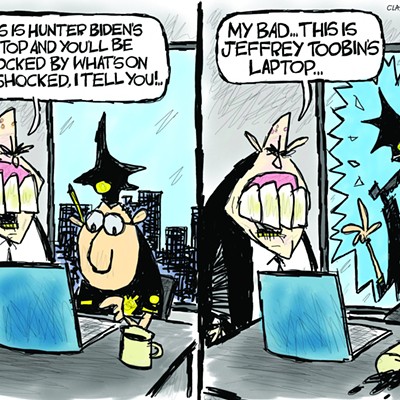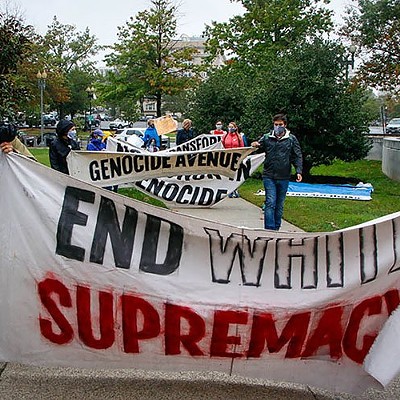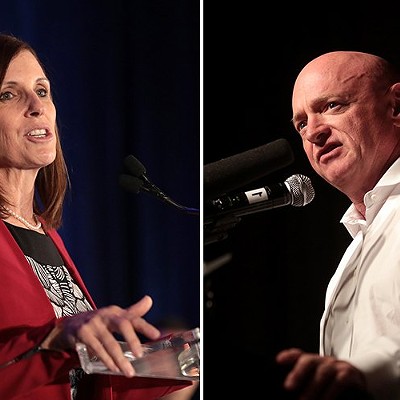Never did I go into the fray of a rally or protest without a plan and friends who worked with me as support. The folks who were not planning to get arrested were also aware of our intent and made appropriate space for us. At the 1999 WTO protests in Seattle, this approach worked beautifully, and we were able to shut down the trade talks.
It takes a lot of planning and cooperation to pull off effective protests.
So, I've been mystified lately at the trend by so-called anarchists who promote spontaneous autonomous action, whereby one has the right to pull an action out of one's sleeve at the last minute. Under this scenario, trigger-happy officers are even more willing to use over-the-top force at a demonstration.
I never knew anarchism to mean that one has a right to put others at risk without their knowledge or consent.
These concerns have been echoed in Tucson's activist community for years and have recently bubbled to the surface in the wake of recent massive anti-war and anti-Bush rallies and protests. More than 500 folks here marched at the Sept. 24 anti-war march, but it revealed a microcosm of conflicts currently in sway. Many participants appreciated the peacekeepers (liaisons with the police). And still others felt restricted by them. Most were there in a peaceful spirit, while a few anarchists held a sign declaring, "We're ready for a fight!"
When Mary Denton was first involved in the anti-war movement in the 1960s, there was a more peaceful atmosphere among activists which made rude, aggressive behavior intolerable. "What I'm finding today," says Denton, "is when anarchists do show up at planning meetings, which they do infrequently, you get shut down as 'too weak' if they disagree with you."
Lenny Molina with Chuk'shon EF! and a self-affirmed anarchist, takes issue with what he feels is too much control. According to Molina, "Restrictive rallies with the presence of peacekeepers stifles creativity and leaves out segments of the community." When he was told that some folks feel that this attitude actually keeps more folks away because they fear getting arrested, he reaffirmed that anarchists should have the freedom to do what they want.
Another Tucson activist deeply disagrees. Says Susan Thorpe, "Not advising people before actions is not fair--it kind of tricks people into getting arrested." She welcomes peacekeepers as an intelligent wedge between the police and the protesters. "The cops become increasingly more cooperative when we take more responsibility for ourselves," says Thorpe.
Another local anarchist, Christian Guerrero, doesn't trust the cops. "It could be that you're totally cool but just protesting the wrong issue (to the police). ... It doesn't matter how you act; they'll crack down if they want ... so relax and do what you want."
Joe Bernick, the hard-working force behind Tucson Peace Action Coalition--the group behind most major local rallies--has pretty much seen it all since 1964. "The difference now," says Bernick, "is the rise of a new anarchist movement. They don't come to meetings or try to work with us. They come to fuck with us." He adds, "I resent them coming in at the last minute trying to change the issue or direction of our rallies and protests."
So, the question remains: Where do we go from here? Is our goal to keep demonstrations to the least common denominator to attract as many people as possible? In future protest gatherings, this will continue to be an issue.
What we need according to Bernick are "militant activists who have their own smaller actions, and that would be where the direct action happens."
Makes sense to me. When I show up to a family-friendly march with my small child, the last thing I want to see is a sign provoking a fight.
In a peaceful march, we are not looking for a fight. We are attempting to get across a peaceful message. Whether anarchists can understand that distinction and act accordingly remains to be seen.










